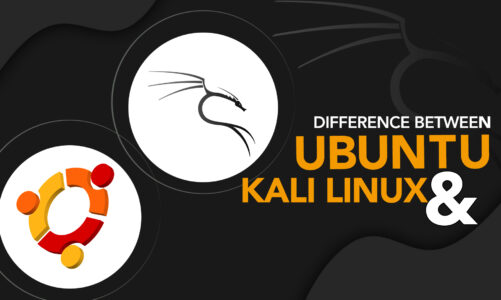When it comes to launching virtual servers on AWS, Amazon Elastic Compute Cloud (EC2) is the go-to choice, providing scalable computing resources in the cloud. However, selecting the most suitable operating system (OS) for your EC2 instances is a critical decision that can significantly impact performance, security, and overall efficiency. Regarding this, we often look for the comparison between Amazon Linux and Ubuntu as viable options for EC2 instances. So what are the differences actually, and what makes the difference? Let’s find out.
What is Amazon Linux?
Amazon Linux is an operating system that is designed and maintained by Amazon Web Services (AWS). This Linux-based operating system is tailored specifically for use in AWS cloud environments, providing an efficient, secure, and stable environment for applications running on AWS.
This operating system’s development is tightly integrated with AWS’s design, ensuring it can take full advantage of AWS’s features and services. With Amazon Linux, you can expect robust networking, superior I/O, and seamless integration with AWS’s broad array of services.
The primary objective of Amazon Linux is performance. It’s built to perform exceptionally well on AWS’s EC2 platform, enabling smooth and rapid scalability according to your workload demands. This performance optimization means that whether you’re running one instance or thousands, Amazon Linux can handle the load efficiently.
What is Ubuntu?
Ubuntu, on the other hand, is a Debian-based Linux operating system. It was developed by Canonical and used by millions worldwide.
Ubuntu comes with a wide array of pre-installed software, making it a functional choice right out of the box for many users. It includes office software, web browsing, email, and multimedia apps, along with a host of development tools for programmers.
Moreover, its Software Center allows users to easily discover and install more applications. In the context of AWS EC2, Ubuntu offers pre-configured Amazon Machine Images (AMIs), which are optimized for different types of workloads, ensuring robust performance in the cloud.
Amazon Linux vs Ubuntu for EC2: Detailed Comparison
1: Performance
Amazon Linux is highly optimized for the EC2 environment, which leads to enhanced performance. It features a minimal footprint, accelerated package updates, and tuning for optimal EC2 performance.
Ubuntu also performs admirably on EC2, thanks to the cloud-optimized kernel settings. It supports the latest EC2 instance features and includes the AWS command-line interface for easy integration.
2: Compatibility
Being a product of AWS, Amazon Linux excels in compatibility with other AWS services. It comes pre-loaded with AWS CLI (Command Line Interface) and other AWS-specific tools, allowing you to interact seamlessly with AWS services. It’s also often the first to support new AWS features, ensuring you can make the most out of AWS’s continually evolving service offering.
Ubuntu, while not AWS-specific, supports a vast range of software packages, making it a versatile choice for different applications.
3: Security
Amazon Linux benefits from AWS’s focus on security. AWS regularly updates Amazon Linux with security patches, helping to protect your instances from known vulnerabilities. Amazon Linux also has a small footprint and comes with only the necessary packages pre-installed, minimizing potential attack surfaces.
Ubuntu is also secure and receives regular security updates from Canonical, the company that maintains Ubuntu. It features a built-in firewall and virus protection, along with support for optional encrypted home directories. When used on EC2, Ubuntu instances also benefit from AWS’s inherent security features, such as security groups and IAM roles.
4: Community Support
Amazon Linux support is primarily provided by AWS, which offers comprehensive documentation and premium support plans. While there is a community of Amazon Linux users, it’s not as large or active as the Ubuntu community. However, given the backing of AWS, you can count on receiving quality support for Amazon Linux.
Conclusion
Amazon Linux, developed by AWS, ensures superior integration with AWS services and optimized performance on EC2. However, Ubuntu offers greater software compatibility and a large, active community for support. While Amazon Linux is ideal for AWS-focused workloads, Ubuntu’s versatility makes it a strong choice for various applications.



